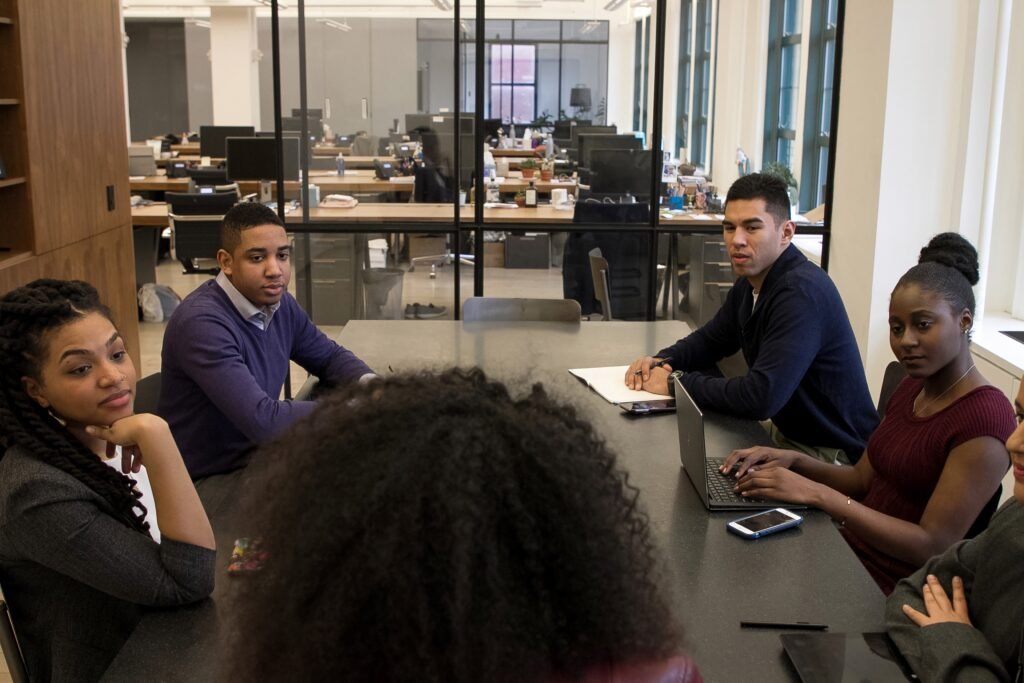Job interviews can be daunting, but understanding what hiring managers really want can help ease your nerves and increase your chances of success. In this article, we’ll explore some valuable insights from hiring managers themselves, shedding light on what they wish candidates knew about the interview process. Armed with this knowledge, you’ll be better equipped to ace your next job interview and impress potential employers.
First impressions matter
Dressing appropriately
When it comes to making a good first impression, dressing appropriately is crucial. The way you present yourself can speak volumes about your professionalism and attention to detail. It’s important to dress in a manner that aligns with the company’s culture and industry standards. Doing some research beforehand can give you a better understanding of what is expected. Remember, it’s always better to be slightly overdressed than underdressed.
Punctuality is key
Being on time for your interview shows respect for the interviewer’s time and demonstrates your reliability. Plan your route to the interview location ahead of time, taking into account traffic or public transportation delays. Arriving a few minutes early allows you to gather your thoughts and compose yourself before the interview starts. If, for any reason, you anticipate running late, it’s important to inform the interviewer as soon as possible.
Body language and demeanor
Your body language and demeanor can convey a lot about your confidence and level of interest in the job. Maintain good posture, make eye contact, and offer a firm handshake when greeting the interviewer. Smile and be attentive throughout the interview, showing that you are engaged and interested in the conversation. Avoid fidgeting or slouching, as this can give off the impression of nervousness or disinterest. Remember, your non-verbal cues can be just as important as your verbal responses.
Do your research
Know the company
One of the most common interview questions is, “What do you know about our company?” To impress the interviewer, it’s crucial to do your homework beforehand. Visit the company’s website, read their mission statement, and learn about their products or services. Familiarize yourself with recent news or developments related to the company. This will not only demonstrate your interest in the role but also help you understand how your skills and experience align with the company’s goals.
Understand the role
Before walking into an interview, make sure you have a clear understanding of the role you are applying for. Analyze the job description, paying attention to the required skills and qualifications. Take note of any specific responsibilities or tasks mentioned. This will allow you to tailor your answers and highlight relevant experiences during the interview. It also shows the interviewer that you have taken the time to understand the position and are genuinely interested in it.
Research the interviewers
Finding out who will be conducting the interview can give you an advantage when preparing for the conversation. Look up the interviewers on professional networking sites like LinkedIn to gain insights into their background and responsibilities. This information can help you establish a connection during the interview and ask more targeted questions. Knowing a bit about the interviewer’s role within the company can also give you a better understanding of what they might be looking for in a candidate.

Tailor your answers
Read the job description
The job description is your roadmap for tailoring your answers during the interview. Take the time to carefully read it and identify the key skills and experiences the company is seeking. Think about examples from your previous roles that demonstrate how you possess those desired qualifications. By aligning your answers with the expectations outlined in the job description, you can show the interviewer that you are the right fit for the role.
Highlight relevant experiences
During the interview, it’s important to highlight your relevant experiences and accomplishments. Use specific examples to showcase how your past achievements make you a strong candidate for the position. Whether it’s a project you successfully completed or a problem you solved, be prepared to discuss the actions you took and the results you achieved. This will allow the interviewer to visualize how you can contribute to their organization.
Address weaknesses proactively
Nobody is perfect, and interviewers understand that. Rather than trying to hide your weaknesses, address them proactively. Be honest about areas where you may have less experience or skills, but emphasize how you are actively working on improving them. Showing a willingness to learn and grow can demonstrate to the interviewer that you are adaptable and open to feedback.
Be prepared to ask questions
Show interest and engagement
Asking thoughtful questions during an interview not only helps you gather the information you need to make an informed decision but also demonstrates your interest and engagement in the role. Prepare a list of questions beforehand that delve deeper into the company’s culture, values, or the team dynamics. Showing a genuine curiosity about the company and the role will leave a positive impression on the interviewer.
Ask about company culture
Understanding the company’s culture is crucial in determining whether you will thrive in the organization. Ask questions about the work environment, management style, and team dynamics. This will show the interviewer that you are considering how well you fit into the company’s overall ethos. Additionally, learning about the company’s values and culture can help you assess whether it aligns with your own personal values and work style.
Inquire about growth opportunities
Demonstrate your long-term commitment and ambition by asking about growth opportunities within the company. This shows the interviewer that you have a genuine interest in your own professional development and are looking for a company that can provide growth and advancement opportunities. Asking about training programs, mentorship opportunities, or potential career paths within the organization can highlight your dedication to personal and professional growth.

Storytelling is powerful
Share relevant anecdotes
Storytelling can be a powerful tool to engage the interviewer and make your experiences more memorable. Take the opportunity to share relevant anecdotes that showcase your skills or accomplishments. These stories can help the interviewer understand how you have overcome challenges in the past or demonstrated the desired qualities for the role. Sharing real-life examples can bring your experiences to life and create a more personal connection with the interviewer.
Highlight accomplishments
As you tell your stories, make sure to highlight your accomplishments. Whether it’s receiving an award, exceeding targets, or implementing a successful strategy, emphasizing your achievements shows the interviewer the value you can bring to their organization. Quantify your accomplishments whenever possible, using specific numbers or percentages to showcase the impact of your work. This will demonstrate your ability to deliver results and contribute to the company’s success.
Connect experiences to the role
While sharing your stories and highlighting accomplishments, it’s important to connect them back to the role you are applying for. Clearly articulate how your past experiences have equipped you with the skills, knowledge, and mindset required to excel in the position. By drawing these connections, you can help the interviewer understand how your background aligns with their specific needs and make yourself a more compelling candidate.
Practice, practice, practice
Mock interviews and role play
Practice is key to feeling confident and prepared for an interview. Arrange mock interviews with friends, family members, or career counselors who can give you feedback on your responses. Role play different interview scenarios and practice answering common questions. This will help you refine your answers, improve your delivery, and feel more comfortable in the interview setting.
Refine your elevator pitch
Crafting a concise and compelling elevator pitch is essential for introducing yourself effectively during an interview. It should convey your unique value proposition, summarize your experience, and express your enthusiasm for the role. Practice delivering your elevator pitch until it sounds natural and confident. This will ensure you make a strong first impression and set the tone for the rest of the interview.
Prepare for common questions
While you can’t predict every question you’ll be asked in an interview, there are some common ones that frequently come up. Take the time to research and prepare for these questions. Practice your responses so that you can answer them confidently and succinctly. Some common interview questions include: “Tell me about yourself,” “Why do you want this job,” and “Describe a time when you faced a challenge and how you overcame it.” Being well-prepared for these questions will help you feel more at ease during the interview.

Confidence, not overconfidence
Show self-assurance
Confidence is key during an interview, as it demonstrates that you believe in your abilities. Showcase your self-assurance through your body language, tone of voice, and the way you articulate your answers. However, be careful not to come across as arrogant or overbearing. Strike a balance between confidence and humility to show that you are a capable professional who is also open to learning and collaboration.
Demonstrate humility
Highlighting your accomplishments is important, but it’s equally crucial to acknowledge the contributions of others and demonstrate humility. Recognize that success often comes from teamwork, and be willing to give credit where it is due. Showing humility also means being open to feedback and admitting when you don’t have all the answers. This can create a positive impression and indicate to the interviewer that you are a team player.
Maintain a positive attitude
A positive attitude can make a significant difference in the way you come across during an interview. Smile, maintain good eye contact, and engage in enthusiastic conversation. Present yourself as someone who is eager to contribute to the organization and who genuinely enjoys their work. A positive attitude is infectious and can leave a lasting impression on the interviewer.
The importance of enthusiasm
Display passion for the role
Express your genuine passion for the role throughout the interview. Let the interviewer know why you are excited about the opportunity and how it aligns with your career goals. Share examples of how you have pursued similar interests or projects outside of your professional life. Demonstrating your enthusiasm can be contagious and can convince the interviewer that you are truly invested in the position.
Express genuine excitement
Authenticity is key when it comes to expressing excitement about a job. Avoid using exaggerated or insincere language. Instead, let your genuine enthusiasm shine through in your words and body language. Show interest in the interviewer’s questions and actively engage in the conversation. This will help create a positive and memorable impression.
Demonstrate motivation
Apart from being excited about the role, it’s important to demonstrate your motivation to succeed. Talk about your drive, initiative, and ability to take initiative. Discuss times when you went above and beyond to achieve your goals or solve complex problems. By showcasing your motivation, you are indicating to the interviewer that you are someone who can bring energy and dedication to the position.

Follow up after the interview
Send a thank-you note
After the interview, it’s important to follow up with a thank-you note. This can be a simple email expressing your gratitude for the opportunity to interview and reiterating your interest in the position. Thank the interviewer for their time and mention specific points from the conversation that resonated with you. Sending a thank-you note demonstrates your professionalism and can help you stand out among other candidates.
Reiterate interest in the position
In your thank-you note, reiterate your interest in the position and your excitement about the possibility of joining the company. Use this opportunity to reinforce why you are the best fit for the role, reminding the interviewer of the key qualifications and experiences you bring to the table. This reaffirmation can leave a lasting impression and keep you at the top of the interviewer’s mind.
Ask about next steps
It’s perfectly acceptable to inquire about the next steps in the hiring process. Express your eagerness to move forward and ask about the expected timeline for a decision. This shows that you are proactive and interested in keeping the conversation progressing. Asking about next steps also allows you to gain clarity on the recruitment process and manage your expectations accordingly.
Do not badmouth previous employers
Focus on positive experiences
During the interview, avoid speaking negatively about previous employers, colleagues, or experiences. Instead, focus on the positive aspects of your past roles. Emphasize the opportunities you had for growth, the accomplishments you achieved, and the skills you acquired. Present yourself as someone who thrives on positivity and is capable of finding the good in any situation.
Highlight professional growth
If there were specific challenges or difficulties in your previous roles, use them as opportunities to showcase your professional growth. Explain how you overcame those challenges and the lessons you learned along the way. Frame these experiences as valuable learning opportunities that have helped shape you into a stronger and more resilient professional.
Avoid negativity
It’s important to maintain a positive and forward-thinking mindset throughout the interview. Avoid dwelling on negative experiences or harboring any bitterness. Instead, focus on the potential of the future and how you can contribute to the success of the company. By emphasizing positivity and constructive thinking, you can leave a lasting impression on the interviewer.

